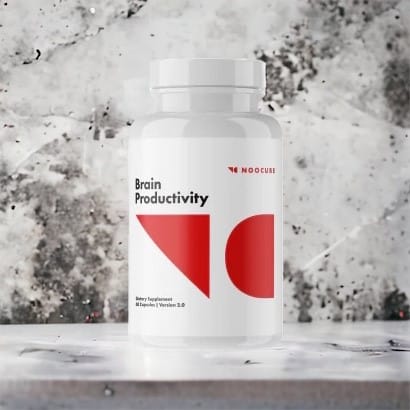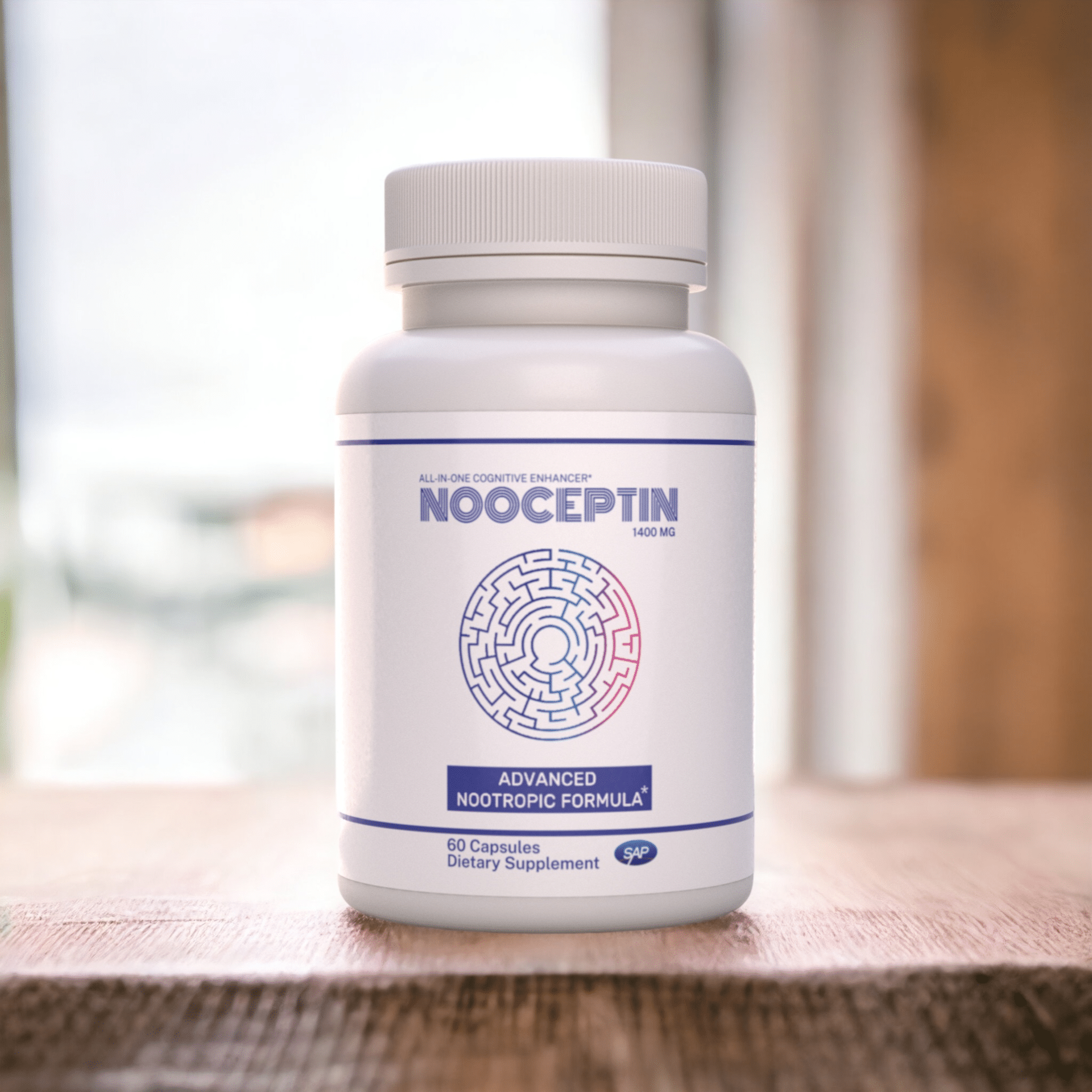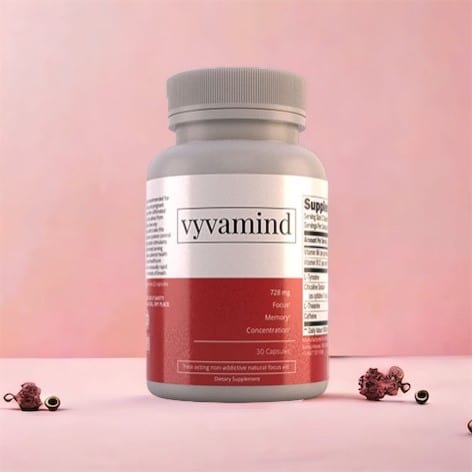ADHD and Nootropics: A Comprehensive Guide to Cognitive Enhancement
Nootropics are a class of substances that enhance cognitive function, memory, and attention (5). They have gained popularity in recent years as an alternative or complementary treatment for ADHD. This article explores the case for people with ADHD using nootropic supplements, providing an overview of the scientific evidence.
Introduction
Attention Deficit Hyperactivity Disorder (ADHD) is a neurodevelopmental disorder that affects both children and adults, characterized by symptoms such as inattention, impulsivity, and hyperactivity (1). Although the exact causes of ADHD remain unknown, genetic and environmental factors are believed to play a significant role (2). Current treatments primarily focus on prescription medications, such as stimulants like methylphenidate and amphetamines, as well as non-stimulants like atomoxetine (3). However, not everyone with ADHD responds well to these medications, and they can also produce adverse side effects (4). As a result, there has been increasing interest in alternative treatments, such as nootropics, to help manage ADHD symptoms.
The Case for Nootropics in ADHD Management
Addressing Nutrient Deficiencies
ADHD has been linked to various nutrient deficiencies, which may exacerbate symptoms (6). Some nootropics, like vitamins, minerals, and amino acids, have been shown to help correct these deficiencies and improve ADHD symptoms. For example:
A study found that children with ADHD had lower levels of zinc, and supplementing with zinc improved their symptoms (7).
A meta-analysis of randomized controlled trials found that omega-3 fatty acid supplementation could improve ADHD symptoms in children (8).
L-carnitine, an amino acid, has been shown to improve symptoms in some children with ADHD (9).
Enhancing Neurotransmitter Function
Many nootropics target neurotransmitters, such as dopamine, norepinephrine, and serotonin, which are thought to play a role in ADHD (10). Some examples include:
L-tyrosine, a precursor to dopamine and norepinephrine, has been shown to improve cognitive performance in individuals with ADHD (11).
Bacopa monnieri, an herbal supplement, has been found to increase serotonin levels and improve cognitive function in individuals with ADHD (12).
Sulbutiamine, a synthetic derivative of vitamin B1, has been shown to increase dopamine levels and improve attention and memory in animal studies (13).
Improving Cerebral Blood Flow
Some nootropics work by enhancing cerebral blood flow, which can improve cognitive function and potentially alleviate ADHD symptoms. Examples include:
Vinpocetine, a derivative of the periwinkle plant, has been shown to increase cerebral blood flow and improve cognitive performance in healthy adults (14).
Ginkgo biloba, a popular herbal supplement, has been found to improve blood flow to the brain and enhance cognitive function in individuals with ADHD (15).
Reducing Oxidative Stress
Oxidative stress has been implicated in ADHD and other neurodevelopmental disorders (16). Some nootropics have antioxidant properties that can help reduce oxidative stress and improve ADHD symptoms, such as:
N-acetylcysteine (NAC), an amino acid derivative, has been shown to reduce oxidative stress and improve symptoms in children with ADHD (17).
Alpha-lipoic acid, a powerful antioxidant, has been found to improve cognitive function and reduce oxidative stress in animal models of ADHD (18).
Promoting Neuroplasticity and Neurogenesis
Neuroplasticity and neurogenesis are essential for optimal brain function and learning (19). Some nootropics have been shown to promote these processes, potentially improving ADHD symptoms:
Lion's mane mushroom (Hericium erinaceus) has been found to promote neuroplasticity and neurogenesis in animal studies, which may translate to improved cognitive function in individuals with ADHD (20).
Phosphatidylserine, a phospholipid, has been shown to improve cognitive performance and support neuroplasticity in individuals with ADHD (21).
Complementing Traditional ADHD Treatments
Nootropics may also be beneficial when used alongside traditional ADHD treatments, as they can enhance the efficacy of these treatments or help mitigate their side effects. For instance:
A study found that co-administration of omega-3 fatty acids with methylphenidate led to a greater reduction in ADHD symptoms compared to methylphenidate alone (22).
Theacrine, a natural stimulant, has been shown to improve focus and attention without causing the side effects associated with traditional stimulant medications (23).

NooCube
BEST ADHD NOOTROPIC
OVERALL
4.9 / 5 Stars
Vyvamind
BEST ADHD NOOTROPIC
FOR FOCUS
4.8 / 5 Stars

Nooceptin
BEST ADHD NOOTROPIC
FOR ANXIETY
4.8 / 5 Stars
Safety and Efficacy Considerations
While there is growing evidence supporting the use of nootropics for ADHD management, it is essential to consider their safety and efficacy. Some nootropics may have side effects or interact with medications, and not all nootropics have been studied extensively in ADHD populations (24). Therefore, it is crucial to consult with a healthcare professional before starting any nootropic regimen, particularly if you are already taking prescription medications for ADHD.
Moreover, the quality of nootropic supplements can vary significantly, and some may contain impurities or inaccurate dosages (25). To ensure the best results and minimize potential risks, it is essential to choose high-quality supplements from reputable manufacturers and follow the recommended dosages.
Conclusion
In conclusion, nootropics present a promising alternative or adjunct treatment option for individuals with ADHD. They can address nutrient deficiencies, enhance neurotransmitter function, improve cerebral blood flow, reduce oxidative stress, promote neuroplasticity and neurogenesis, and complement traditional ADHD treatments. However, more research is needed to fully understand the long-term effects and optimal dosages of various nootropics in ADHD populations.
Before incorporating nootropics into an ADHD management plan, it is essential to consult with a healthcare professional to ensure their safe and effective use. By selecting high-quality supplements and following recommended dosages, individuals with ADHD may find nootropics to be a valuable tool in managing their symptoms and improving overall cognitive function.
References
1. American Psychiatric Association. (2013). Diagnostic and statistical manual of mental disorders (5th ed.). Arlington, VA: American Psychiatric Publishing.
2. Faraone, S. V., & Larsson, H. (2019). Genetics of attention deficit hyperactivity disorder. Molecular Psychiatry, 24(4), 562-575.
3. Cortese, S., Adamo, N., Del Giovane, C., Mohr-Jensen, C., Hayes, A. J., Carucci, S., ... & Cipriani, A. (2018). Comparative efficacy and tolerability of medications for attention-deficit hyperactivity disorder in children, adolescents, and adults: a systematic review and network meta-analysis. The Lancet Psychiatry, 5(9), 727-738.
4. Storebø, O. J., & Simonsen, E. (2019). The Association Between ADHD and Antidepressant Adherence: A Systematic Review and Meta-analysis. Journal of attention disorders, 23(14), 1699-1709. Giurgea, C. (1972). The nootropic concept and its prospective implications. Drug Development Research, 2(5), 441-446.
5. Rucklidge, J. J., & Kaplan, B. J. (2014). Broad-spectrum micronutrient treatment for attention-deficit/hyperactivity disorder: rationale and evidence to date. CNS Drugs, 28(10), 1-12. Arnold, L. E., DiSilvestro, R. A., Bozzolo, D., Bozzolo,
6. H., Crowl, L., Fernandez, S., ... & Joseph, E. (2011). Zinc for attention-deficit/hyperactivity disorder: placebo-controlled double-blind pilot trial alone and combined with amphetamine. Journal of Child and Adolescent Psychopharmacology, 21(1), 1-19.
7. Chang, J. P., Su, K. P., Mondelli, V., & Pariante, C. M. (2018). Omega-3 polyunsaturated fatty acids in youths with attention deficit hyperactivity disorder: a systematic review and meta-analysis of clinical trials and biological studies. Neuropsychopharmacology, 43(3), 534-545.
8. Van Oudheusden, L. J., & Scholte, H. R. (2002). Efficacy of carnitine in the treatment of children with attention-deficit hyperactivity disorder. Prostaglandins, Leukotrienes and Essential Fatty Acids, 67(1), 33-38.
9. Del Campo, N., Chamberlain, S. R., Sahakian, B. J., & Robbins, T. W. (2011). The roles of dopamine and noradrenaline in the pathophysiology and treatment of attention-deficit/hyperactivity disorder. Biological psychiatry, 69(12), e145-e157.
10. Hinz, M., Stein, A., & Uncini, T. (2011). Amino acid management of Parkinson's disease: a case study. International Journal of General Medicine, 4, 165-174.
11. Dave, U. P., Dingankar, S. R., Saxena, V. S., Joseph, J. A., Bethapudi, B., Agarwal, A., & Kudiganti, V. (2014). An open-label study to elucidate the effects of standardized Bacopa monnieri extract in the management of symptoms of attention-deficit hyperactivity disorder in children. Advances in Mind-Body Medicine, 28(2), 10-15.
12. Bizot, J. C., Herpin, A., Pothion, S., Pirot, S., Trovero, F., & Ollat, H. (2005). Chronic treatment with sulbutiamine improves memory in an object recognition task and reduces some amnesic effects of dizocilpine in a spatial delayed-non-match-to-sample task. Progress in Neuro-Psychopharmacology and Biological Psychiatry, 29(6), 928-935.
13. Vas, Á., Gulyás, B., Szabó, Z., Bonoczk, P., Csiba, L., Kiss, B., & Karpati, E. (2002). Clinical and non-clinical investigations using positron emission tomography, near infrared spectroscopy and transcranial Doppler methods on the neuroprotective drug vinpocetine: a summary of evidences. Journal of the Neurological Sciences, 203, 259-262.
14. Uebel-von Sandersleben, H., Rothenberger, A., Albrecht, B., Rothenberger, L. G., Klement, S., & Bock, N. (2014). Ginkgo biloba extract EGb 761® in children with ADHD. Zeitschrift für Kinder-und Jugendpsychiatrie und Psychotherapie, 42(5), 337-347.
15. Joseph, N., Zhang-James, Y., Perl, A., & Faraone, S. V. (2015). Oxidative stress and ADHD: a meta-analysis. Journal of attention disorders, 19(11), 915-924.
16. Deepmala, J., Slattery, J., Kumar, N., Delhey, L., Berk, M., Dean, O., ... & Frye, R. E. (2015). Clinical trials of N-acetylcysteine in psychiatry and neurology: A systematic review. Neuroscience & Biobehavioral Reviews, 55, 294-321.
17. Soczynska, J. K., Bobilev, A. M., Chow, C. S., Mcintyre, R. S., & Faraone, S. V. (2012). The effect of alpha-lipoic acid on ADHD symptoms in the spontaneously hypertensive rat. Journal of attention disorders, 16(4), 351-354.
18. Rahman, M. A., Abdullah, N., & Aminudin, N. (2014). Lignosus rhinocerotis (Cooke) Ryvarden: A medicinal mushroom that stimulates neurite outgrowth in PC-12 cells. Evidence-Based Complementary and Alternative Medicine, 2014.
19. Hirayama, S., Terasawa, K., Rabeler, R., Hirayama, T., Inoue, T., Tatsumi, Y., ... & Warashina, S. (2014). The effect of phosphatidylserine administration on memory and symptoms of attention-deficit hyperactivity disorder: a randomised, double-blind, placebo-controlled clinical trial. Journal of Human Nutrition and Dietetics, 27, 284-291.
Perera, H., Jeewandara, K. C., Seneviratne, S., & Guruge, C. (2012). Combined ω3 and ω6 supplementation in children with attention-deficit hyperactivity disorder (ADHD) refractory to methylphenidate treatment: a double-blind, placebo-controlled study. Journal of Child Neurology, 27(6), 747-753.
20. Kuhman, D. J., Joyner, K. J., & Bloomer, R. J. (2015). Cognitive performance and mood following ingestion of a theacrine-containing dietary supplement, caffeine, or placebo by young men and women. Nutrients, 7(11), 9618-9632.
21. Suliman, N. A., Mat Taib, C. N., Mohd Moklas, M. A., Adenan, M. I., Hidayat Baharuldin, M. T., & Basir, R. (2016). Establishing natural nootropics: recent molecular enhancement influenced by natural nootropic. Evidence-Based Complementary and Alternative Medicine, 2016.
22. Wardle, J., & Sarris, J. (2014). Clinical Naturopathy: An evidence-based guide to practice. Elsevier Health Sciences.
Cohen, P. A. (2012). Assessing supplement safety--the FDA's controversial proposal. New England Journal of Medicine, 366(5), 389-391.

